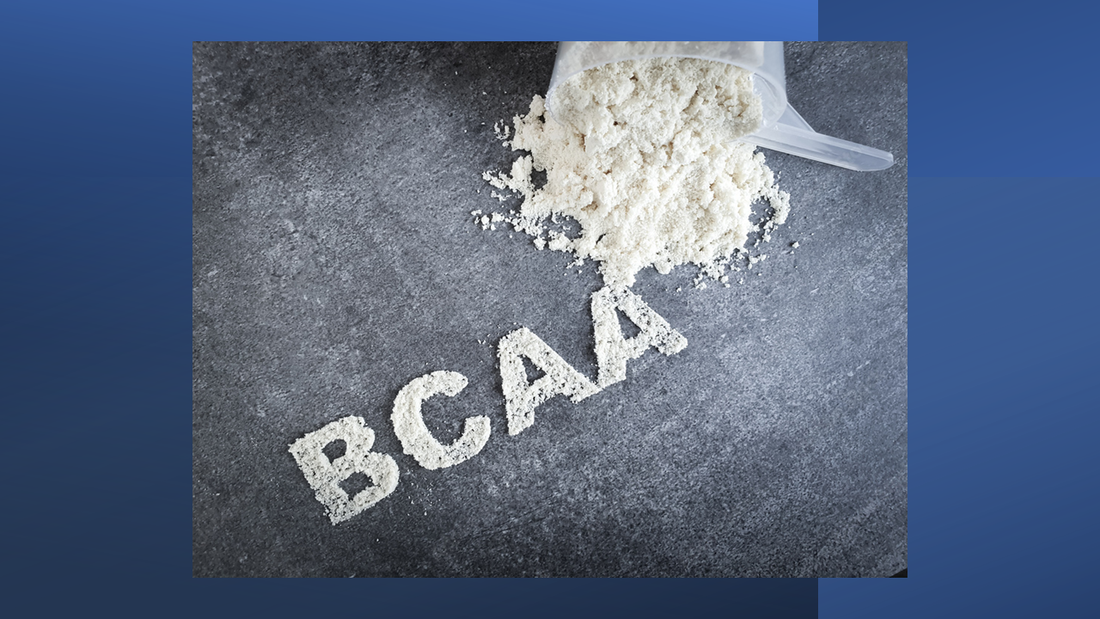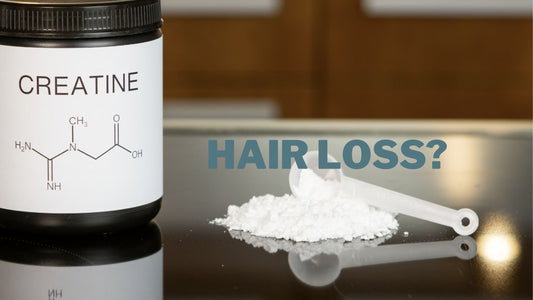
Unlocking the Power of BCAAs: Why They’re Essential for Your Supplement Routine
Share
Branch Chain Amino Acids (BCAAs) have gained widespread recognition as a cornerstone of supplement regimens among athletes, bodybuilders, and fitness enthusiasts alike. Comprised of three essential amino acids – leucine, isoleucine, and valine – BCAAs play a pivotal role in supporting muscle growth, enhancing exercise performance, and facilitating post-workout recovery. In this blog post, we’ll delve into the science behind BCAAs and elucidate why they’re indispensable for maximizing your fitness journey.
BCAAs: Building Blocks of Muscle
1. Stimulate Muscle Protein Synthesis: Leucine, in particular, serves as a potent stimulator of muscle protein synthesis – the process by which muscle fibers repair and grow in response to training stimuli [1]. By activating key signaling pathways involved in muscle protein synthesis, leucine ensures that the body has an ample supply of amino acids to fuel the repair and regeneration of muscle tissue following exercise.
2. Prevent Muscle Breakdown: During periods of intense physical activity or calorie restriction, the body may enter a catabolic state characterized by the breakdown of muscle tissue for energy. BCAAs, however, act as a safeguard against muscle breakdown by providing a readily available source of amino acids that can be utilized for energy production, sparing muscle tissue from degradation [2]. This preservation of lean muscle mass is crucial for maintaining metabolic health and promoting long-term muscle growth.
3. Fuel Endurance and Performance: Isoleucine and valine, the other two BCAAs, play integral roles in energy metabolism and fuel utilization during exercise. By serving as substrates for energy production via the citric acid cycle and gluconeogenesis, isoleucine and valine help sustain endurance and performance during prolonged bouts of physical activity [3]. This translates to improved exercise capacity, delayed onset of fatigue, and enhanced overall athletic performance.
Enhanced Recovery and Reduced Muscle Soreness
1. Accelerate Recovery: BCAAs have been shown to expedite the recovery process following intense exercise by reducing muscle damage, inflammation, and oxidative stress [4]. By promoting the synthesis of new proteins and repairing damaged muscle fibers, BCAAs facilitate faster recovery between workouts, allowing individuals to train at higher frequencies and intensities without compromising their recovery capacity.
2. Alleviate Muscle Soreness: The consumption of BCAAs during or after exercise has been linked to a reduction in delayed onset muscle soreness (DOMS), the muscular discomfort that typically occurs 24-72 hours post-exercise [5]. This analgesic effect is attributed to BCAAs’ ability to mitigate exercise-induced inflammation, attenuate muscle damage, and enhance muscle repair mechanisms, ultimately leading to a quicker recovery and improved training readiness.
Incorporating BCAAs into Your Supplement Routine
Incorporating BCAAs into your supplement routine is a strategic investment in your fitness goals and overall well-being. Whether consumed in the form of standalone BCAA supplements, intra-workout formulations, or protein powders fortified with BCAAs, integrating these essential amino acids into your regimen can yield a multitude of benefits, including:
• Enhanced muscle growth and repair
• Improved exercise performance and endurance
• Accelerated recovery and reduced muscle soreness
• Preservation of lean muscle mass during periods of calorie restriction or intense training
In conclusion, BCAAs represent a potent and versatile tool for optimizing performance, recovery, and muscle growth across diverse athletic endeavors. By harnessing the unique properties of leucine, isoleucine, and valine, BCAAs empower individuals to push their limits, recover faster, and achieve their fitness aspirations with confidence and resilience.
References:
1. Norton, L. E., & Layman, D. K. (2006). Leucine regulates translation initiation of protein synthesis in skeletal muscle after exercise. The Journal of nutrition, 136(2), 533S-537S.
2. Shimomura, Y., Murakami, T., Nakai, N., Nagasaki, M., & Harris, R. A. (2004). Exercise promotes BCAA catabolism: effects of BCAA supplementation on skeletal muscle during exercise. The Journal of nutrition, 134(6), 1583S-1587S.
3. Meeusen, R., Watson, P., Hasegawa, H., Roelands, B., & Piacentini, M. F. (2006). Central fatigue: the serotonin hypothesis and beyond. Sports Medicine, 36(10), 881-909.
4. Howatson, G., Hoad, M., Goodall, S., Tallent, J., Bell, P. G., French, D. N., & Exercise-induced muscle damage is reduced in resistance-trained males by branched chain amino acids: a randomized, double-blind, placebo controlled study. Journal of the International Society of Sports Nutrition, 9(1), 20.
5. Jackman, S. R., Witard, O. C., Jeukendrup, A. E., Tipton, K. D., & Branched-chain amino acid ingestion can ameliorate soreness from eccentric exercise. Medicine and Science in Sports and Exercise, 42(5), 962-970.
BCAAs: Building Blocks of Muscle
1. Stimulate Muscle Protein Synthesis: Leucine, in particular, serves as a potent stimulator of muscle protein synthesis – the process by which muscle fibers repair and grow in response to training stimuli [1]. By activating key signaling pathways involved in muscle protein synthesis, leucine ensures that the body has an ample supply of amino acids to fuel the repair and regeneration of muscle tissue following exercise.
2. Prevent Muscle Breakdown: During periods of intense physical activity or calorie restriction, the body may enter a catabolic state characterized by the breakdown of muscle tissue for energy. BCAAs, however, act as a safeguard against muscle breakdown by providing a readily available source of amino acids that can be utilized for energy production, sparing muscle tissue from degradation [2]. This preservation of lean muscle mass is crucial for maintaining metabolic health and promoting long-term muscle growth.
3. Fuel Endurance and Performance: Isoleucine and valine, the other two BCAAs, play integral roles in energy metabolism and fuel utilization during exercise. By serving as substrates for energy production via the citric acid cycle and gluconeogenesis, isoleucine and valine help sustain endurance and performance during prolonged bouts of physical activity [3]. This translates to improved exercise capacity, delayed onset of fatigue, and enhanced overall athletic performance.
Enhanced Recovery and Reduced Muscle Soreness
1. Accelerate Recovery: BCAAs have been shown to expedite the recovery process following intense exercise by reducing muscle damage, inflammation, and oxidative stress [4]. By promoting the synthesis of new proteins and repairing damaged muscle fibers, BCAAs facilitate faster recovery between workouts, allowing individuals to train at higher frequencies and intensities without compromising their recovery capacity.
2. Alleviate Muscle Soreness: The consumption of BCAAs during or after exercise has been linked to a reduction in delayed onset muscle soreness (DOMS), the muscular discomfort that typically occurs 24-72 hours post-exercise [5]. This analgesic effect is attributed to BCAAs’ ability to mitigate exercise-induced inflammation, attenuate muscle damage, and enhance muscle repair mechanisms, ultimately leading to a quicker recovery and improved training readiness.
Incorporating BCAAs into Your Supplement Routine
Incorporating BCAAs into your supplement routine is a strategic investment in your fitness goals and overall well-being. Whether consumed in the form of standalone BCAA supplements, intra-workout formulations, or protein powders fortified with BCAAs, integrating these essential amino acids into your regimen can yield a multitude of benefits, including:
• Enhanced muscle growth and repair
• Improved exercise performance and endurance
• Accelerated recovery and reduced muscle soreness
• Preservation of lean muscle mass during periods of calorie restriction or intense training
In conclusion, BCAAs represent a potent and versatile tool for optimizing performance, recovery, and muscle growth across diverse athletic endeavors. By harnessing the unique properties of leucine, isoleucine, and valine, BCAAs empower individuals to push their limits, recover faster, and achieve their fitness aspirations with confidence and resilience.
References:
1. Norton, L. E., & Layman, D. K. (2006). Leucine regulates translation initiation of protein synthesis in skeletal muscle after exercise. The Journal of nutrition, 136(2), 533S-537S.
2. Shimomura, Y., Murakami, T., Nakai, N., Nagasaki, M., & Harris, R. A. (2004). Exercise promotes BCAA catabolism: effects of BCAA supplementation on skeletal muscle during exercise. The Journal of nutrition, 134(6), 1583S-1587S.
3. Meeusen, R., Watson, P., Hasegawa, H., Roelands, B., & Piacentini, M. F. (2006). Central fatigue: the serotonin hypothesis and beyond. Sports Medicine, 36(10), 881-909.
4. Howatson, G., Hoad, M., Goodall, S., Tallent, J., Bell, P. G., French, D. N., & Exercise-induced muscle damage is reduced in resistance-trained males by branched chain amino acids: a randomized, double-blind, placebo controlled study. Journal of the International Society of Sports Nutrition, 9(1), 20.
5. Jackman, S. R., Witard, O. C., Jeukendrup, A. E., Tipton, K. D., & Branched-chain amino acid ingestion can ameliorate soreness from eccentric exercise. Medicine and Science in Sports and Exercise, 42(5), 962-970.

